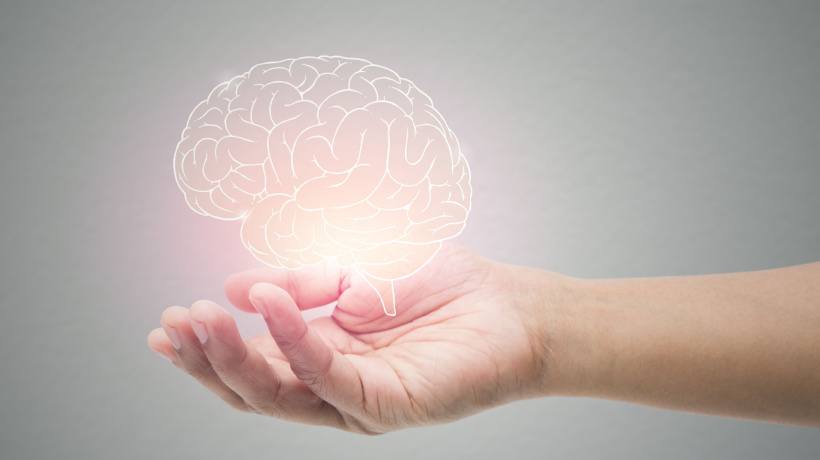Dedicated Mental Health Services Designed for Holistic Care
Dedicated Mental Health Services Designed for Holistic Care
Blog Article
Comprehensive Inpatient Mental Health And Wellness Services for Effective Therapy
Inpatient mental wellness solutions represent a vital part of the healthcare system, providing a intensive and structured setting for individuals experiencing serious emotional distress. These services utilize a multidisciplinary strategy, integrating different evidence-based treatments to deal with the intricate requirements of individuals. However, the efficiency of such detailed treatment extends beyond prompt stabilization; it likewise includes the change to outpatient assistance, a crucial phase commonly ignored. Discovering the nuances of this continuum reveals significant implications for both private recovery and broader mental health end results. What factors truly affect this transition, and exactly how can we improve its effectiveness?
Understanding Inpatient Mental Wellness Services
Inpatient psychological health and wellness solutions supply important support for people experiencing serious psychological distress that can not be taken care of successfully in an outpatient setting. These solutions are developed to offer an extensive level of treatment in a structured setting, commonly within a hospital or specialized facility. People admitted to inpatient programs typically show acute signs and symptoms, such as suicidal ideation, extreme clinical depression, or psychosis, requiring round-the-clock surveillance and intervention.
The admission procedure typically entails an extensive analysis by psychological wellness experts, that assess the person's psychological state, history, and prompt demands. Once confessed, patients participate in a selection of therapeutic techniques customized to their specific demands, consisting of medication administration, specific therapy, and group sessions. This alternative strategy aims to support the person's condition, promote security, and foster coping abilities.
Inpatient psychological health services not only address prompt health and wellness worries yet also work as a bridge to continuous treatment. By supplying a regulated environment, these services assist in the advancement of therapy strategies that can be proceeded in outpatient setups, hence ensuring a continuum of care and enhancing long-lasting results for people with complicated psychological health and wellness demands.
Trick Components of Effective Treatment
Efficient therapy in inpatient psychological health and wellness solutions makes up a number of crucial elements that promote healing and stabilization. A detailed evaluation is vital to identify the individual's specific demands and obstacles. This assessment informs the growth of a tailored treatment plan, which offers as a roadmap for treatment.
An additional essential part is the multidisciplinary group technique. Partnership among psychoanalysts, psychologists, nurses, and social employees makes sure that different perspectives add to the individual's care, boosting the effectiveness of treatment. Evidence-based healing techniques, such as cognitive-behavioral treatment (CBT) and dialectical actions therapy (DBT), are additionally important, providing structured techniques that deal with maladaptive idea patterns and behavioral issues.

Last but not least, an emphasis on aftercare preparation is essential to ensure a smooth transition to outpatient solutions, reducing the threat of regression and advertising long-term health. These collective parts produce a reliable treatment structure within inpatient psychological health and wellness services.
Advantages of Comprehensive Care

Detailed treatment in inpatient psychological health services offers many advantages that significantly enhance individual end results. Among the primary advantages is the holistic strategy to treatment, attending to not just the emotional signs and symptoms yet also the physical, social, and emotional needs of people. This comprehensive evaluation allows for tailored interventions that promote general wellness.
One more advantage is the combination of multidisciplinary teams, which promotes partnership amongst health care experts. This collective atmosphere guarantees that clients get worked with treatment, reducing the risk of fragmented treatment and boosting interaction amongst caretakers. Moreover, detailed care assists in connection of services, enabling smooth changes from inpatient to outpatient setups, which is important for long-lasting recovery.

Last but not least, the organized setting of thorough inpatient treatment supplies a risk-free area for clients to take part in restorative activities, helping them create dealing methods and durability. Collectively, these benefits add to extra efficient treatment and improved quality of life for people experiencing psychological health and wellness crises.
Evidence-Based Therapeutic Strategies
In the world of mental health therapy, evidence-based restorative methods play an essential role in making certain that individuals receive effective and medically supported treatments. These techniques integrate the ideal readily available research study with clinical experience and individual values, cultivating a tailored therapy experience that attends to individual demands.
Cognitive Behavior Modification (CBT) is one of one of the most extensively recognized evidence-based techniques, concentrating on identifying and altering adverse idea patterns and habits. This organized approach has shown efficiency in treating conditions such as ptsd, depression, and stress and anxiety. In A Similar Way, Dialectical Behavior Modification (DBT) is particularly efficient for people with borderline individuality problem, emphasizing the development of emotional regulation and interpersonal effectiveness skills.
In addition, drug monitoring is commonly an important element of evidence-based therapy, as psychotropic drugs can minimize signs and symptoms and enhance overall performance. Joint care designs, which entail multidisciplinary teams, additionally improve the see this effectiveness of inpatient services by ensuring comprehensive evaluations and continual surveillance.
Eventually, the integration of evidence-based therapeutic strategies not just promotes favorable professional results but additionally encourages individuals, promoting a sense of firm and durability in their mental wellness journeys.
Transitioning to Outpatient Assistance
The shift from inpatient mental wellness services to outpatient assistance notes a vital phase in a person's healing trip. This period calls for cautious planning and sychronisation to ensure connection of care and to minimize the threats of relapse or crisis. Reliable discharge planning must commence early in the inpatient keep, involving a multidisciplinary group that includes psychiatrists, psycho therapists, nurses, and social workers.
Trick aspects of an effective transition consist of the development of a detailed aftercare strategy tailored to the person's specific requirements. This strategy should detail follow-up appointments, medicine monitoring, and therapeutic treatments, along with identify neighborhood sources and support system that can assist in recurring recovery.
In addition, patient and household education and learning is essential during over at this website this phase. Comprehending the indicators of potential problems and the value of sticking to therapy can empower clients and their assistance systems.
Normal follow-up and review of the outpatient strategy are important to attend to progressing obstacles. By cultivating a collaborative relationship between inpatient and outpatient companies, the possibility of continual healing rises, inevitably boosting the person's top quality of life and reducing the risk of readmission.

Final Thought
In recap, comprehensive inpatient mental health services provide a vital framework for attending to serious mental distress with a multidisciplinary technique. Eventually, such detailed treatment is essential for lasting psychological wellness and health.
The admission procedure normally involves a comprehensive assessment by psychological wellness specialists, that assess the individual's psychological state, background, and prompt requirements.Efficient treatment in inpatient mental wellness solutions makes up several key parts that promote healing and stabilization.Thorough treatment in inpatient mental health solutions uses various benefits that dramatically improve client outcomes.The change from inpatient mental health solutions to outpatient support notes an important phase in a person's healing journey.In recap, extensive inpatient mental health and wellness services supply a More about the author vital framework for resolving serious emotional distress with a multidisciplinary approach.
Report this page